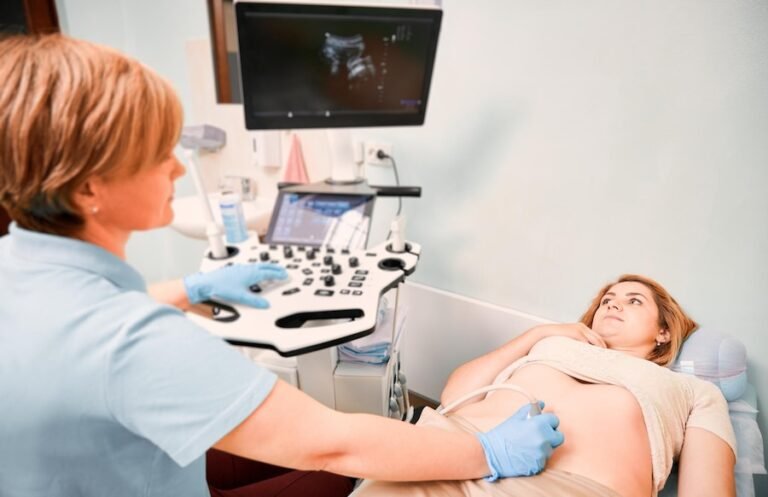Understanding PCOS: Everything You Need To Know
Millions of women worldwide suffer from the complex hormonal condition known as polycystic ovarian syndrome, or PCOS. Despite its prevalence, PCOS remains widely misunderstood, often leading to misdiagnosis and inadequate treatment. In this comprehensive guide, we will delve into the intricacies of PCOS, exploring its causes, symptoms, diagnosis, and management strategies to provide a clearer understanding of this condition. If you’re seeking specialized care for PCOS in Paschim Vihar, finding the right healthcare provider is crucial to effectively managing your condition and improving your quality of life. A knowledgeable and experienced PCOS Doctor in Paschim Vihar can offer personalized treatment plans tailored to your individual needs, helping you navigate the challenges of PCOS and achieve optimal health outcomes.

What is PCOS?
PCOS is a hormonal disorder characterized by a combination of symptoms, including irregular menstrual cycles, ovarian cysts, and elevated levels of androgens (male hormones) such as testosterone. The exact cause of PCOS is not fully understood, but it is believed to involve a combination of genetic, environmental, and lifestyle factors.
Symptoms of PCOS
PCOS manifests differently in each individual, but common symptoms may include:
- Irregular menstrual cycles: Hormonal abnormalities in PCOS patients may result in irregular or nonexistent menstrual cycles.
- Ovarian cysts: Multiple small cysts may develop on the ovaries, causing pelvic pain or discomfort.
- Hyperandrogenism: Elevated levels of male hormones can lead to symptoms such as hirsutism (excessive hair growth), acne, and male-pattern baldness.
- Insulin resistance: Many women with PCOS have insulin resistance, which can result in weight gain, difficulty losing weight, and an increased risk of type 2 diabetes.
- Fertility issues: Women who have PCOS are more likely to experience infertility because of irregular or absent ovulation.
Diagnosis of PCOS
Diagnosing PCOS can be challenging due to its varied presentation and overlapping symptoms with other conditions. To diagnose PCOS, healthcare providers typically perform a thorough medical history review, physical examination, and various tests, including:
- Hormone levels: Blood tests may be conducted to assess hormone levels, including testosterone, luteinizing hormone (LH), follicle-stimulating hormone (FSH), and insulin.
- Pelvic ultrasound: A transvaginal ultrasound may be performed to visualize the ovaries and detect the presence of ovarian cysts.
- Menstrual history: Women with irregular menstrual cycles or absent periods may undergo a menstrual history assessment to help diagnose PCOS.
Management Strategies for PCOS
While there is no cure for PCOS, management strategies aim to alleviate symptoms, improve fertility outcomes, and reduce the risk of long-term complications. Treatment options may include:
- Lifestyle modifications: Adopting a healthy lifestyle through regular exercise, balanced nutrition, and weight management can help improve insulin sensitivity and hormone balance in women with PCOS.
- Medications: Hormonal contraceptives, such as birth control pills, can regulate menstrual cycles and reduce symptoms of hyperandrogenism. Other medications, such as metformin, may be prescribed to improve insulin resistance and lower testosterone levels.
- Fertility treatments: Women with PCOS who are trying to conceive may benefit from fertility treatments, including ovulation induction with medications such as clomiphene citrate or assisted reproductive technologies like in vitro fertilization (IVF).
- Management of symptoms: Symptomatic treatment may be recommended to address specific symptoms of PCOS, such as acne, hirsutism, or hair loss. This may involve topical medications, oral medications, or other interventions tailored to individual needs.
Support and Education
It can be difficult to manage PCOS on a physical and emotional level. Support groups and educational resources can provide valuable support and guidance for women with PCOS and their families. These resources offer information on managing symptoms, navigating treatment options, and coping with the emotional impact of the condition.

Conclusion
PCOS is a complex hormonal disorder that affects women of reproductive age, impacting various aspects of health and well-being. By understanding the causes, symptoms, diagnosis, and management strategies for PCOS, individuals can take proactive steps to manage their condition effectively and improve their quality of life. With proper medical care, lifestyle modifications, and support, women with PCOS Doctor in Paschim Vihar PCOS can lead fulfilling lives and achieve their reproductive goals while minimizing the impact of this challenging condition.
For any further queries, Plz visit gynaecentre.in or you can check our social media accounts, Facebook, Instagram








